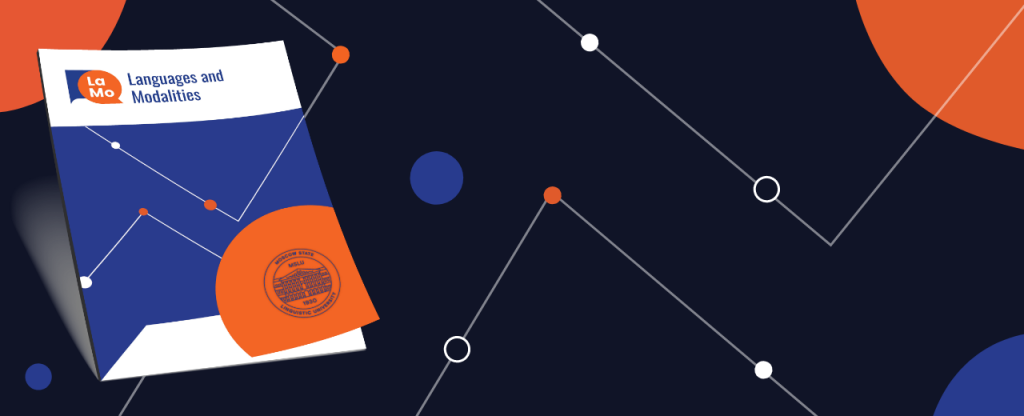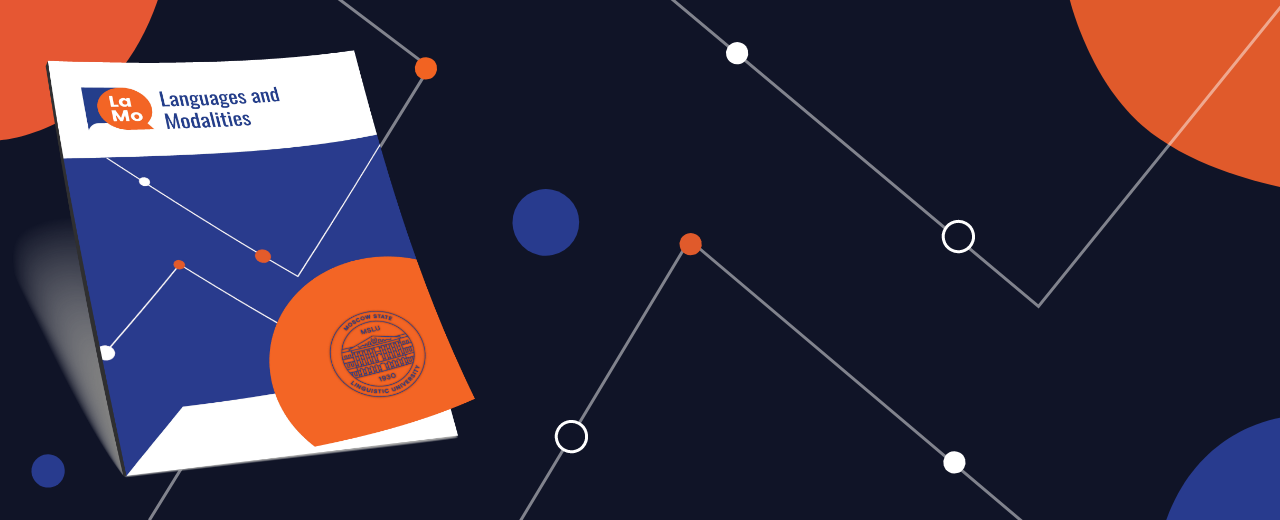Languages and Modalities, a new peer-reviewed international journal published by the Moscow State Linguistic University, now uses a high-end publishing infrastructure after moving to the technologically advanced ARPHA Platform and signing with scholarly publisher and technology provider Pensoft.
The journal encourages the exchange of ideas in the study of meaning at the intersection of various languages and modes and channels of communication. It explores the ways in which we create, express, or negotiate meaning using different languages and modes or channels of communication, how we borrow and adapt words and their meanings between languages, how meanings differ in different languages, and how they travel and change across languages and modalities.

Languages and Modalities publishes articles on the cross-lingual aspects of semantics, comparative and contrastive semantics, various types of bilingualism, and on the multimodality of human interaction. It especially encourages submissions that are interdisciplinary in content and methodology. The cutting-edge approaches and methods of cross-lingual and multimodal linguistic research it disseminates help improve our understanding of natural interaction across languages and contribute to more efficient communication. Providing an open-access platform for international audiences of scholars in cross-lingual and multimodal semantics, the journal contributes to building up the capacity of cross-disciplinary exchange of ideas worldwide.
After moving to Pensoft’s scholarly publishing platform ARPHA, and with a new user-friendly website, Languages and Modalities now takes full advantage of ARPHA’s signature fast-track, end-to-end publishing system, which significantly improves user experience for authors, reviewers and editors alike. The collaboration-focused platform supports manuscripts in all steps of the publishing process – submission, peer review, editing, publication, dissemination and archiving, all within its online environment. To the benefit of readers, published articles are then made available in PDF, machine-readable JATS XML formats, and semantically enriched HTML, which makes them much easier to discover, access, cite and reuse.
“ARPHA has proved to be the best solution for both commencing and experienced editorial teams, as it creates a very friendly environment from the point of view of publishing processes, as well as personal interaction,” commented the journal’s editor in chief, Olga Iriskhanova.
The journal’s first issue, focused on multimodal studies of co-speech gestures as well as sign languages, is already available open access on its new website. It is dedicated to the memory of Dominique Boutet (1966–2020), a French researcher who introduced a breakthrough method of analyzing co-speech gestures and sign language signs based on modern technology from the digital arts and a multidisciplinary approach to gesture annotation. His kinesiological approach offers a unique methodological system that changes a researcher’s perspective from an external (visual) to an internal (physiological) one, allowing for a more objective and digital-friendly analysis.
Other highlights in this pilot issue, which contains works are inspired, built on, or related to Boutet’s framework for multimodal kinesiological analysis of interlocutors’ bodily movements observed in various languages, include an investigation of the multimodal expression of irony in interaction and a discussion of the use of the question-answer pattern for relativisation across signed languages.
With this new partnership, Pensoft steps into the field of linguistics and communication studies. The scholarly publisher, best known for its wide range of biodiversity journals, is constantly looking to expand its thematic scope – just recently it added computer studies to its portfolio after announcing a deal with the Journal of Universal Computer Science.

